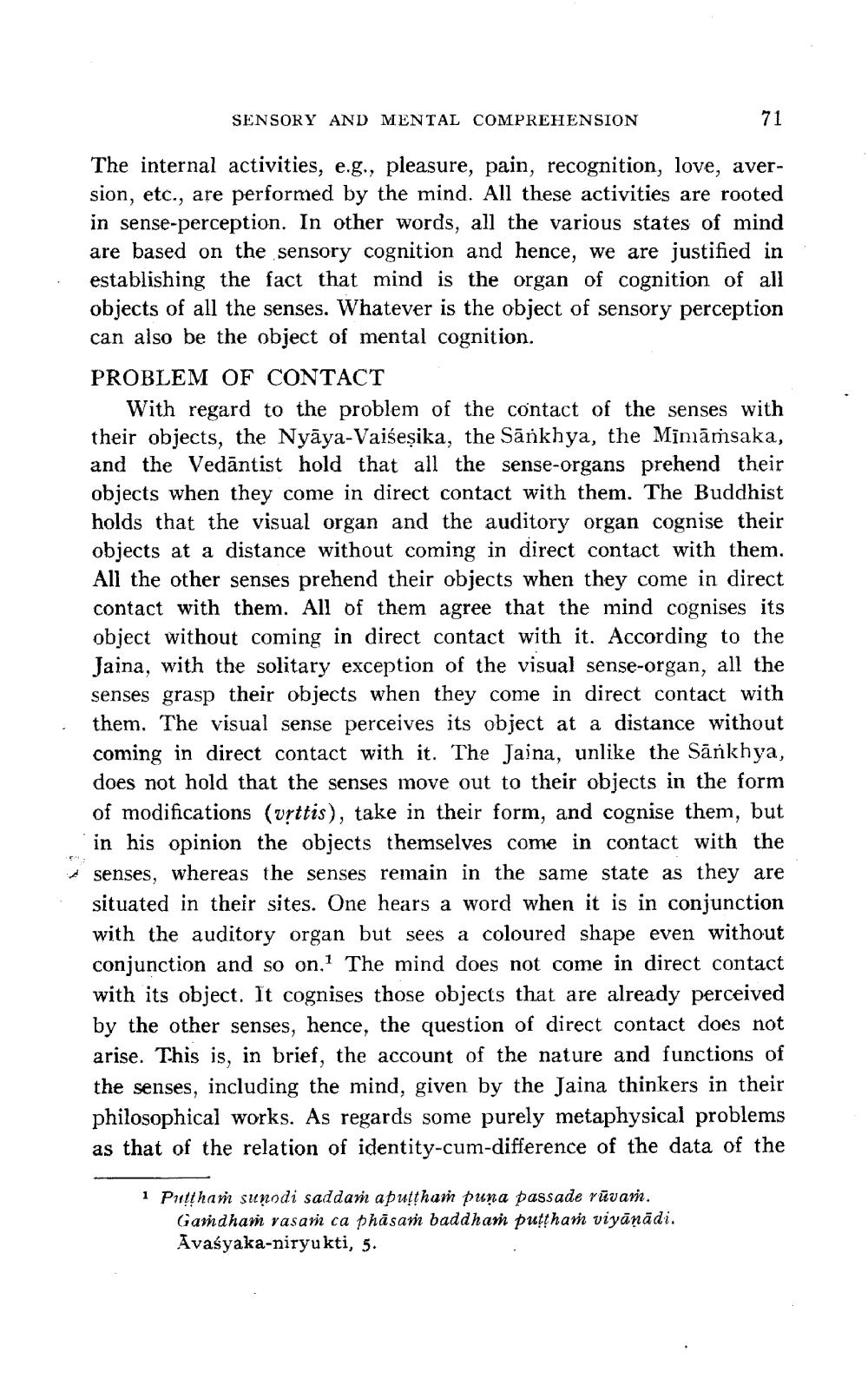________________
SENSORY AND MENTAL COMPREHENSION
The internal activities, e.g., pleasure, pain, recognition, love, aversion, etc., are performed by the mind. All these activities are rooted in sense-perception. In other words, all the various states of mind are based on the sensory cognition and hence, we are justified in establishing the fact that mind is the organ of cognition of all objects of all the senses. Whatever is the object of sensory perception can also be the object of mental cognition. PROBLEM OF CONTACT
With regard to the problem of the contact of the senses with their objects, the Nyāya-Vaiśeşika, the Sānkhya, the Mināmsaka,
the Vedāntist hold that all the sense-organs prehend their objects when they come in direct contact with them. The Buddhist holds that the visual organ and the auditory organ cognise their objects at a distance without coming in direct contact with them. All the other senses prehend their objects when they come in direct contact with them. All of them agree that the mind cognises its object without coming in direct contact with it. According to the Jaina, with the solitary exception of the visual sense-organ, all the senses grasp their objects when they come in direct contact with them. The visual sense perceives its object at a distance without coming in direct contact with it. The Jaina, unlike the Sānkhya, does not hold that the senses move out to their objects in the form of modifications (urttis), take in their form, and cognise them, but
in his opinion the objects themselves come in contact with the inte senses, whereas the senses remain in the same state as they are
situated in their sites. One hears a word when it is in conjunction with the auditory organ but sees a coloured shape even without conjunction and so on. The mind does not come in direct contact with its object. It cognises those objects that are already perceived by the other senses, hence, the question of direct contact does not arise. This is, in brief, the account of the nature and functions of the senses, including the mind, given by the Jaina thinkers in their philosophical works. As regards some purely metaphysical problems as that of the relation of identity-cum-difference of the data of the
1 Putihan sunodi saddam apuţtham puna passade rūvam.
Gandham rasar ca phāsam baddhar puttham viyānādi. Avaśyaka-niryukti, 5.




